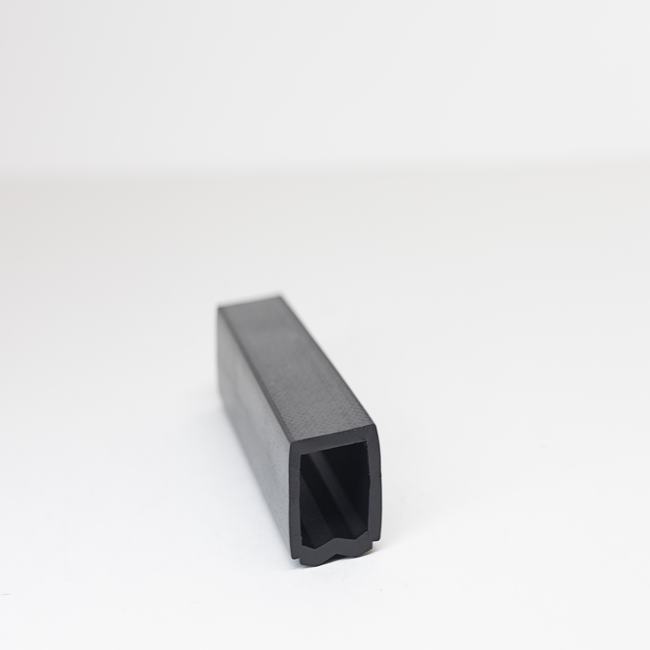Industrial seals are critical components used in a wide range of industrial applications to prevent the leakage of fluids, protect machinery and equipment, and maintain operational efficiency. These seals come in various forms, materials, and designs, each tailored to specific industrial requirements. In this comprehensive description, we will delve into the world of industrial seals, their functions, types, materials, applications, and key considerations:
Purpose and Function:
Industrial seals play a crucial role in industrial processes, with the primary functions being:
- Leakage Prevention: The fundamental purpose of industrial seals is to create a barrier that prevents the escape of gases, liquids, or particles from one area to another. This is essential in maintaining the integrity of fluid systems and preventing environmental contamination.
- Protection: Seals provide protection for machinery and equipment components against wear and tear, corrosion, and damage. They help extend the lifespan of these assets and reduce maintenance requirements.
- Containment: In some cases, industrial seals are used to contain substances within a specific area, such as isolating hazardous chemicals, gases, or biological materials to ensure safety and compliance with regulations.
Types of Industrial Seals:
There is a wide variety of industrial seals, each designed for specific applications and conditions. Common types include:
- O-Rings: Circular rubber or elastomeric seals used in dynamic and static applications to create a secure, leak-proof seal.
- Gaskets: Flat seals often made of materials like rubber, silicone, or metal, used to create a static seal between two surfaces.
- Mechanical Seals: Commonly found in pumps, compressors, and mixers, these seals use rotating and stationary components to create a dynamic, high-integrity seal.
- Lip Seals: Also known as oil seals, these are used to prevent the leakage of lubricants in rotating equipment like motors, engines, and gearboxes.
- Hydraulic Seals: Designed for hydraulic systems, these seals maintain the pressure of hydraulic fluids, preventing leaks and ensuring system efficiency.
- Pneumatic Seals: Used in pneumatic systems, these seals are designed to handle air or gas pressures, maintaining air-tightness.
- Labyrinth Seals: Common in high-speed rotating machinery, they use a series of barriers to reduce the ingress of contaminants.
Materials:
Industrial seals are made from various materials, and the choice of material depends on factors such as temperature, pressure, chemical compatibility, and application requirements. Common materials include:
- Elastomers: Such as rubber, silicone, and neoprene, are widely used due to their flexibility, resilience, and resistance to various fluids.
- Thermoplastics: Including PTFE (Teflon), nylon, and UHMW, offer chemical resistance and low friction.
- Metals: Aluminum, stainless steel, and brass are used in applications where durability and high-temperature resistance are essential.
- Composites: Materials like fiberglass-reinforced plastics combine strength and lightweight properties for specific applications.
Applications:
Industrial seals find applications in a wide array of industries, including:
- Oil and Gas: Sealing systems in pipelines, wellheads, and drilling equipment to prevent fluid leaks and maintain safety.
- Manufacturing: Used in machinery, pumps, compressors, and hydraulic systems to ensure operational efficiency and minimize downtime.
- Automotive: Found in engines, transmissions, and braking systems to prevent leaks and ensure optimal performance.
- Aerospace: In aircraft engines, landing gear, and hydraulic systems for critical safety and performance reasons.
- Chemical Processing: Used to contain and protect against chemical spills and leaks in pipes, tanks, and valves.
- Pharmaceuticals: Ensuring the containment of sterile or hazardous materials in pharmaceutical processing equipment.
Installation and Maintenance:
Proper installation and maintenance are essential to ensure the effectiveness of industrial seals. This may involve regular inspections, lubrication, replacement of worn seals, and adherence to manufacturer recommendations.
Customization:
Industrial seals are often customized to fit specific equipment and operational requirements, ensuring a precise fit and optimal sealing performance.
In conclusion, industrial seals are versatile components with wide-ranging applications in diverse industries. They are essential for maintaining operational efficiency, preventing leaks, protecting machinery, and ensuring safety and environmental compliance. The choice of the right type and material of industrial seal, along with proper installation and maintenance, is critical for their effectiveness in industrial processes.


